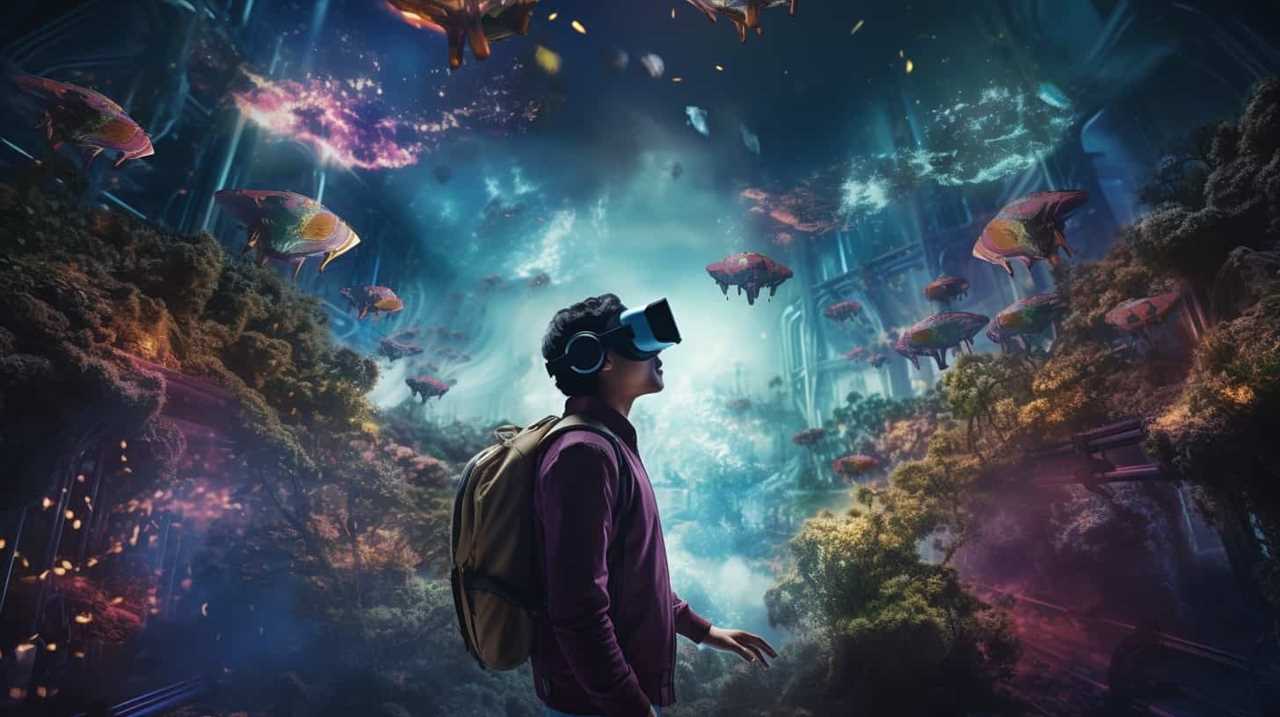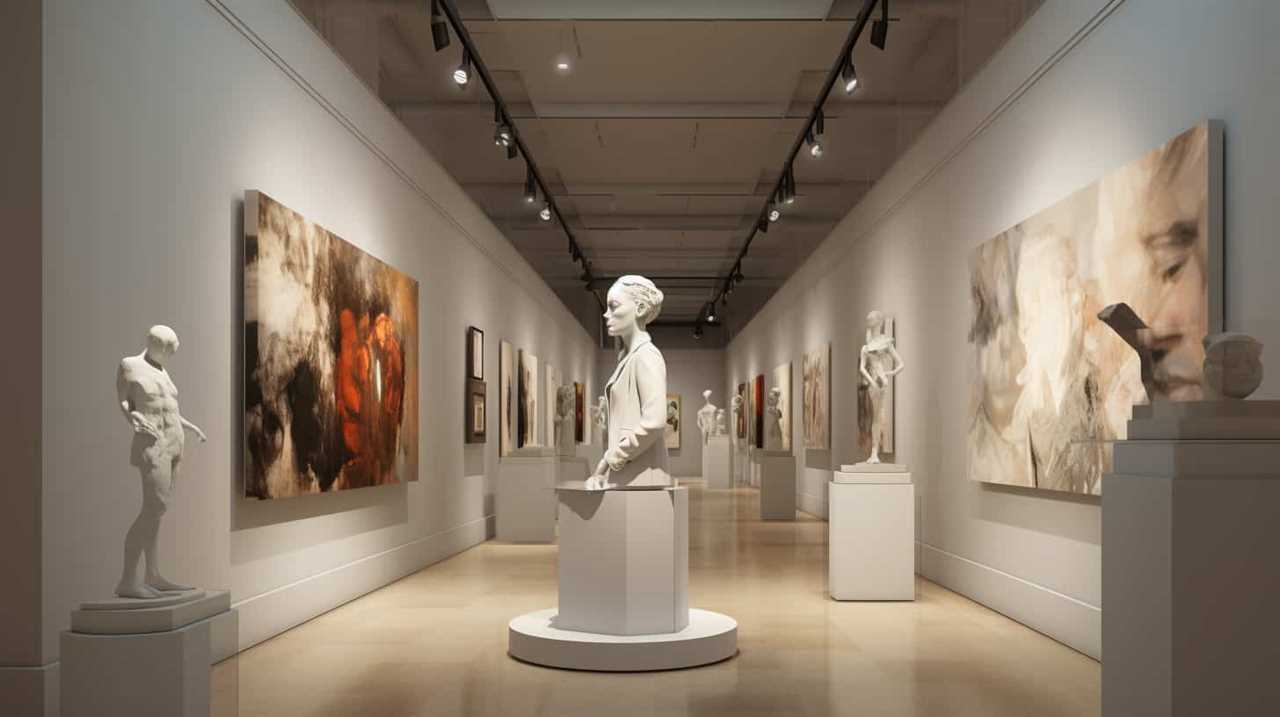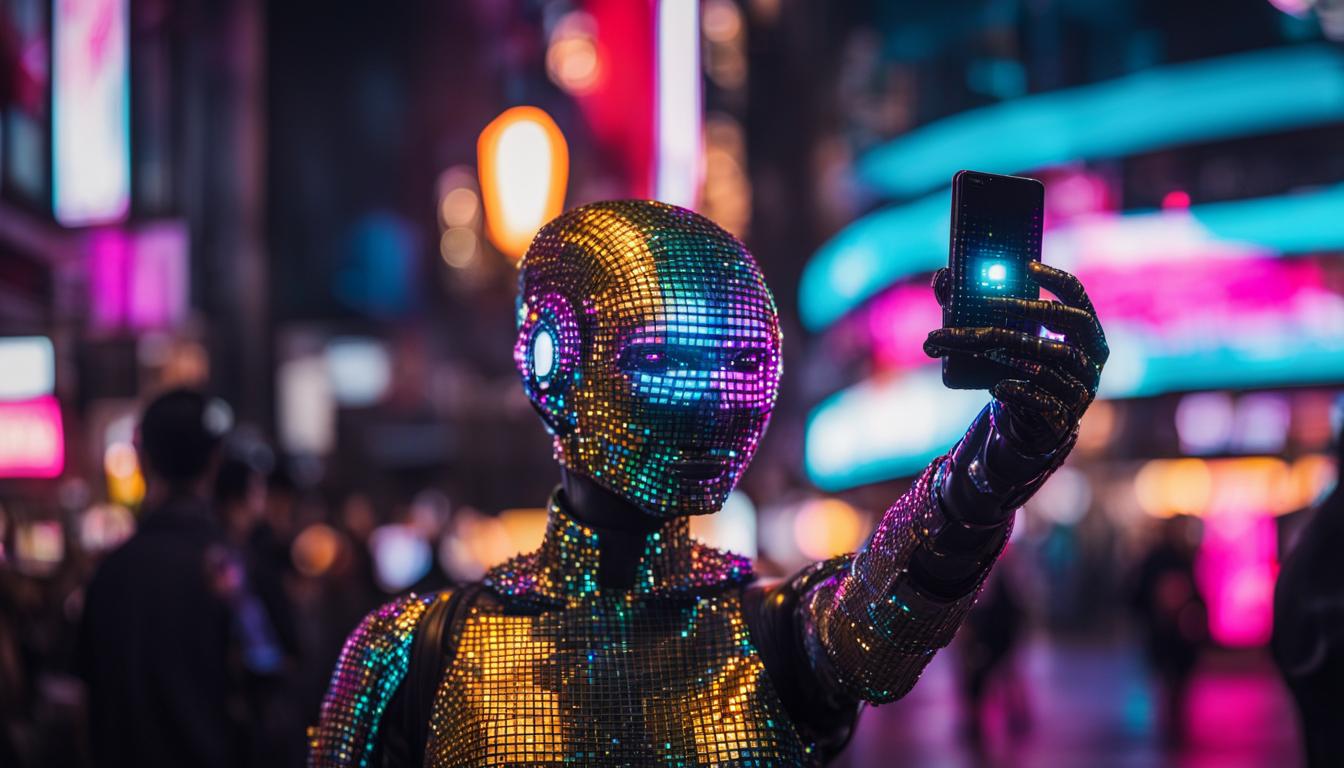Experience the captivating realm of films and television, as they transport us with their stories and breathtaking visuals.
But what if we told you that the future of this industry lies in the hands of AI? That’s right, artificial intelligence is revolutionizing film and TV production, enhancing storytelling, streamlining processes, and bringing mind-blowing visual effects to the screen.
Join us as we embark on a journey to discover how AI is shaping the future of entertainment. Get ready to be amazed.
Key Takeaways
- AI automates post-production processes, saving time and resources.
- AI-driven narrative tools generate unique storylines and plot twists.
- AI automates tedious and time-consuming tasks, increasing efficiency.
- AI revolutionizes the creation and implementation of visual effects.
AI Advancements in Film and TV Production
We are witnessing significant advancements in AI technology that are revolutionizing film and TV production. One of the key areas where AI is making a profound impact is in automating post-production processes.

Traditionally, post-production has been a time-consuming and labor-intensive phase of filmmaking, involving tasks such as editing, color grading, and adding visual effects. However, with the help of AI, these processes can now be automated, saving both time and resources. AI-powered algorithms can analyze footage, identify the best shots, and even suggest edits, making the post-production workflow more efficient and streamlined.
Additionally, AI is also being used to make casting decisions in the film and TV industry. By analyzing data and patterns from successful projects, AI algorithms can help predict the success of actors in specific roles, aiding in the casting process. This not only speeds up the decision-making process but also ensures that the right actors are chosen for the right roles, ultimately enhancing the quality of the final production.
Enhancing Storytelling Through AI Technology
AI technology is revolutionizing storytelling in film and TV production. It is enhancing narrative development and creative possibilities. With the advancement of AI-driven narrative tools, filmmakers and writers can now harness the power of artificial intelligence to create more engaging and immersive stories.
These tools analyze vast amounts of data, such as existing scripts, audience preferences, and cultural trends, to generate unique storylines and plot twists. AI-powered character development takes character creation to a new level, enabling creators to explore complex personalities and motivations.

Streamlining Production Processes With AI
By automating tedious and time-consuming tasks, AI technology revolutionizes film and TV production, allowing us to streamline our production processes like never before. With AI driven automation, we can optimize workflows and increase efficiency, giving us more time and freedom to focus on the creative aspects of our projects.
Here are four ways AI streamlines production processes:
- Automated scheduling and resource management: AI algorithms can analyze data and make intelligent decisions to allocate resources and schedule tasks, minimizing downtime and maximizing productivity.
- Enhanced post-production editing: AI-powered tools can analyze footage, identify key scenes, and suggest edits, saving editors time and effort.
- Real-time data analysis: AI systems can monitor production data and provide insights in real-time, allowing us to make informed decisions and adjustments on the fly.
- Streamlined collaboration: AI technologies facilitate seamless communication and collaboration among team members, regardless of their physical location, enabling efficient remote work.
With AI at our disposal, we can transform the way we produce films and TV shows, making the process smoother and more streamlined than ever before.
Ai-Driven Visual Effects and Animation
With AI driving the future of film and TV production, we can now delve into the exciting realm of AI-driven visual effects and animation. AI has revolutionized the way visual effects are created and implemented in film and TV. Real-time rendering powered by AI algorithms allows for faster and more efficient production processes, eliminating the need for time-consuming manual labor.

AI can also enhance the level of realism in visual effects, making them appear more lifelike and seamless. Furthermore, AI has opened up new possibilities for virtual reality integration in film and TV, creating immersive experiences for viewers. By leveraging AI technology, filmmakers can now push the boundaries of creativity and deliver visually stunning and captivating content.
As we explore the future of AI in film and TV distribution, let’s examine how AI is reshaping the way content is delivered to audiences.
The Future of AI in Film and TV Distribution
As we delve deeper into the future of film and TV production with AI, we’re now poised to explore the transformative impact of AI on the distribution of content to audiences.
AI-powered distribution platforms are revolutionizing film and TV distribution with AI algorithms, bringing about a new era in how content is delivered and consumed.

Here are four key ways in which AI is reshaping the distribution landscape:
- Personalized Recommendations: AI algorithms analyze viewer data to provide tailored content recommendations, enhancing the viewing experience and increasing engagement.
- Dynamic Targeting: AI enables precise targeting of specific audience segments, ensuring that content reaches the right viewers at the right time.
- Content Optimization: AI algorithms can optimize content formats and delivery channels based on viewer preferences, ensuring maximum reach and impact.
- Efficient Distribution: AI-powered platforms automate distribution processes, reducing costs and streamlining workflows for content creators and distributors alike.
Through these advancements, AI is empowering both creators and audiences, offering a future of freedom and limitless possibilities in film and TV distribution.
Frequently Asked Questions
How Does AI Technology in Film and TV Production Impact Job Opportunities in the Industry?
AI technology in film and TV production revolutionizes the industry, impacting job opportunities. It enhances efficiency, automates repetitive tasks, and improves creative processes. While some jobs may be replaced, new roles emerge, requiring adaptability and upskilling.
What Are Some Ethical Concerns Surrounding the Use of AI in Storytelling and Production Processes?
Ethical concerns arise when AI is used in storytelling and production processes. We must consider the impact on creativity, authenticity, and human labor. Balancing technological advancements with ethical considerations is crucial for the future of the industry.

Can AI Completely Replace Human Creativity in the Film and TV Industry?
AI’s impact on artistic expression and its role in streamlining production processes are subjects of debate. While AI can assist in certain aspects, it is unlikely to completely replace human creativity in the film and TV industry.
How Do Ai-Driven Visual Effects and Animation Contribute to the Overall Viewer Experience?
AI-driven visual effects and animation greatly enhance the viewer experience in film and TV production. By incorporating advanced technologies, such as deep learning and machine learning, AI can create stunning visuals and immersive storytelling, revolutionizing post-production processes.
What Are Some Potential Challenges and Limitations That AI May Face in the Future of Film and TV Distribution?
AI limitations and future challenges in film and TV distribution include potential biases in content recommendations, concerns regarding data privacy and security, and the need for human creativity and emotional connection that AI may struggle to replicate.
Conclusion
In conclusion, the future of film and TV production is being revolutionized by AI technology. With advancements in AI, storytelling is being enhanced, production processes are being streamlined, and visual effects and animation are becoming more realistic than ever before.

One interesting statistic that showcases this is the fact that AI-generated content is estimated to account for 20% of all media consumed by 2025. This visual representation of AI’s impact on the industry highlights the growing significance of AI in the world of entertainment.









